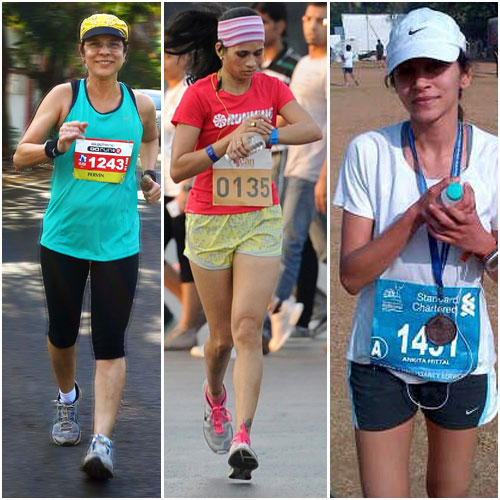If you’re in the Philadelphia area, tomorrow the Penn Museum @pennmuseum has its 33rd Annual Chinese New Year Celebration.

If you’re in the Philadelphia area, tomorrow the Penn Museum @pennmuseum has its 33rd Annual Chinese New Year Celebration.

The Mumbai Marathon is tomorrow. Here are some profiles of some of the female runners participating.
I just came across an opinion piece from last summer written by Petter Buffett for the New York Times. He describes a term he calls “Philanthropic Colonialism”, where rich donors try to “save” locals even though the donors have zero knowledge of the culture or its problems. An excerpt is below (full article here).
Buffett writes:
” I now hear people ask, “what’s the R.O.I.?” when it comes to alleviating human suffering, as if return on investment were the only measure of success. Microlending and financial literacy (now I’m going to upset people who are wonderful folks and a few dear friends) — what is this really about? People will certainly learn how to integrate into our system of debt and repayment with interest. People will rise above making $2 a day to enter our world of goods and services so they can buy more. But doesn’t all this just feed the beast?…I’m really not calling for an end to capitalism; I’m calling for humanism. “
Nice New York Times interview with author Daniel Klein about the wonders of the prolonged stay abroad, instead of perpetually chasing “new” travel destinations and experiences.
(Klein’s most recent book is “Travels with Epicurus: A Journey to a Greek Island in Search of a Fulfilled Life“.)
An excerpt from the interview:
There’s something about old age that can induce the patience needed to gradually sink beneath the surface of a new environment. Instead of trying to keep track of constantly changing scenes, we can delve into a single scene. Yum.
Photographs from Hydra by Billy Hughes, who journeyed to Hydra, Greece, with Klein while the latter was finishing “Travels With Epicurus”.
Ever wonder how rural Africans brush their teeth? Metropolis TV sent a correspondent to Kenya to find out.
Thinking about donating books / clothes abroad? While the sentiment might be good, there are far better ways to help others.
One great example is a new non-profit called LivelyHoods in Kenya which helps locals earn money by selling local goods.
The LivelyHoods project, which began in Kawangware, a densely populated urban slum about nine miles (15km) from Nairobi, is designed to create employment opportunities by training young people to sell products tailored to the needs of their communities. Cornerstones of the scheme’s iSmart brand include fuel-efficient cookstoves, of which 3,233 have been sold so far, as well as solar lamps and reusable sanitary products for women. All the products are vetted for their suitability, first by the LivelyHoods sales team and then by potential customers.
Here is founder Maria Springer to explain:
If you’re volunteering in Nepal, especially through our programs in Bijayanagar, you have the unique opportunity to visit the birthplace of Buddha located in the small town of Lumbini.
And now as a bonus, archaeologists in Nepal have just announced that they have discovered traces of the world’s oldest Buddhist shrine at the same temple complex in Lumbini where Buddha (“Siddhartha”) was born.
Lumbini is about 175 miles from Kathmandu and less than 100 miles from Bijayanagar. Our volunteers have been coming to Bijayanagar for the last decade, working at schools, medical clinics and orphanages. So it’s an easy weekend trip to visit Lumbini during your volunteer trip.
The village of Bijayanagar, Nepal:
Temples around Bijayanagar, Nepal:
Here is a PDF copy of our Volunteer Handbook — Service Learning Trip to Ghana.
This guide gives you a good idea of the information we provide to you, the volunteer, both before and during your trip.
The document covers topics such as the daily itinerary, health and safety, accommodations, and pre-trip checklist for your volunteer trip to Ghana.

The VietNamNet Newspaper has some wonderful photos from Halloween in Vietnam.
Kenya does not require any vaccinations for entry.
However we recommend that at least two months before departure for Kenya, you visit a travel clinic or an individual doctor specializing in travel medicine to discuss any possible vaccinations.
We follow the vaccination guidelines of the Centers For Disease Control for Kenya (CDC).
The CDC recommends:
Routine vaccines: Measles-mumps-rubella (MMR) vaccine, diphtheria-tetanus-pertussis vaccine, varicella (chickenpox) vaccine, polio vaccine, and your yearly flu shot.
Hepatitis A Hepatitis: You can get hepatitis A through contaminated food or water in Kenya, regardless of where you are eating or staying.
Typhoid: You can get typhoid through contaminated food or water in Kenya. CDC recommends this vaccine for most travelers, especially if you are staying with friends or relatives, visiting smaller cities or rural areas, or if you are an adventurous eater.
Malaria
Malaria is present in some of our volunteering locations including Kenya. Read about how to prevent and treat malaria.
Zika
Zika is a risk in Kenya. Because Zika infection in a pregnant woman can cause serious birth defects, women who are pregnant should not travel to Kenya. All travelers should strictly follow steps to prevent mosquito bites and sexual exposure to Zika virus during and after the trip. For more information, see Zika Virus.
